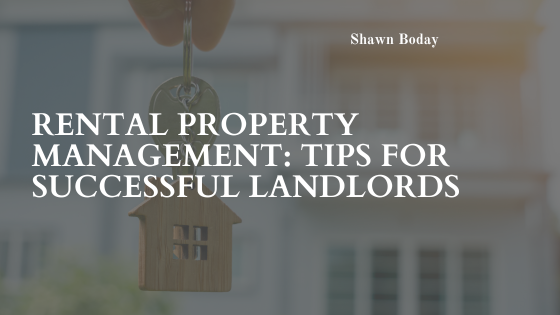
by Shawn Boday | Apr 25, 2024 | Business, Home Buying Process, House Flipping, Housing Market, Real Estate, Real Estate Investing, Real Estate Tips, Real Estate Value, Shawn Boday
As the population ages, seniors play an increasingly significant role in shaping the real estate market. With changing preferences, needs, and lifestyles, this demographic drives demand for specific housing and amenities. This blog post will explore how seniors influence the housing market and what this means for real estate trends.
Rise in Demand for Senior-Friendly Housing
One of the most significant impacts of the aging population on the real estate market is the growing demand for senior-friendly housing options. As individuals age, they often seek homes that are more accessible, easier to maintain, and better suited to their changing needs.
Many seniors are downsizing from larger homes to smaller, more manageable properties like condos, townhouses, or single-level dwellings. These housing options typically require less maintenance and offer amenities such as community centers, fitness facilities, and on-site healthcare services, which appeal to seniors looking to simplify their lives and enjoy an active lifestyle.
Age-Friendly Features and Amenities
In addition to downsizing, seniors seek homes with age-friendly features and amenities that promote safety, comfort, and independence. Features such as grab bars in bathrooms, wider doorways and hallways, step-free entrances, and low-maintenance landscaping are becoming increasingly popular among older homeowners.
Senior living communities and retirement villages are also gaining popularity. These communities offer a range of amenities and services tailored to the needs of older adults. These communities often include on-site healthcare facilities, recreational activities, social events, and transportation services, providing residents with a supportive and vibrant environment to age gracefully.
Impact on Housing Inventory and Affordability
The growing demand for senior-friendly housing options affects housing inventory and affordability in many markets. As more seniors choose to age in place or downsize to smaller homes, there is increased competition for these properties, leading to higher prices and reduced availability, particularly in desirable retirement destinations.
Additionally, the influx of retirees into certain areas can pressure local housing markets, driving up prices and making it more challenging for younger generations to afford homeownership. This can exacerbate affordability issues, especially in areas with limited housing supply and high demand.
Opportunities for Real Estate Investors
The aging population also presents opportunities for real estate investors who are savvy enough to recognize and capitalize on emerging trends. Investing in senior-friendly housing options, such as multifamily properties, assisted living facilities, or senior living communities, can offer attractive returns and steady rental income, particularly in markets with a large and growing senior population.
Moreover, retrofitting existing properties to include age-friendly features and amenities can add value and appeal to older homeowners looking to age in place or downsize. Investing in renovations and upgrades that cater to the needs of seniors can make properties more attractive to this demographic and increase their marketability and resale value.
Conclusion
The aging population is profoundly impacting the real estate market, driving demand for senior-friendly housing options and amenities. As more seniors seek homes that are accessible, comfortable, and supportive of their changing needs, the housing market will continue to evolve to accommodate these preferences. For real estate professionals, investors, and developers, understanding and adapting to the needs of the aging population presents significant opportunities for growth and innovation in the years to come.

by Shawn Boday | Mar 19, 2024 | Real Estate, Real Estate Investing, Real Estate Tips
Real estate markets are cyclical, characterized by periods of expansion, peak, contraction, and trough. Understanding these cycles and their impact on property values, rental rates, and investment opportunities is crucial for real estate investors and stakeholders. In this blog post, we’ll delve into the concept of real estate cycles, explore the key phases of the cycle, and discuss strategies for timing the market for success.
- The Phases of the Real Estate Cycle:
- Expansion: During the expansion phase, real estate markets experience robust growth, characterized by increasing property values, rising demand, and strong investor sentiment. Economic factors such as low interest rates, job growth, and population growth contribute to increased demand for real estate assets. Rental rates and property values tend to rise steadily during this phase, attracting investors and developers.
- Peak: The peak marks the top of the real estate cycle, where property values reach their highest point, and demand begins to plateau. Speculative buying and excessive optimism may drive prices beyond fundamentals during this phase. However, signs of overheating, such as declining affordability, rising vacancy rates, and excessive leverage, may indicate that the market is nearing its peak.
- Contraction: In the contraction phase, real estate markets experience a slowdown or decline in activity, marked by falling property values, decreasing demand, and rising vacancy rates. Economic factors such as rising interest rates, job losses, and oversupply contribute to the contraction phase. Investors may become cautious, and property owners may struggle to sell or lease their assets amid weaker market conditions.
- Trough: The trough represents the bottom of the real estate cycle, where property values stabilize or begin to recover after a period of decline. During this phase, market sentiment is generally negative, and investor confidence is low. However, savvy investors may identify opportunities to acquire undervalued properties at discounted prices, positioning themselves for future growth and appreciation.
- Strategies for Timing the Real Estate Market:
- Research and Analysis: Conduct thorough research and analysis of local market conditions, economic indicators, demographic trends, and supply-demand dynamics. Monitor key metrics such as vacancy rates, absorption rates, rent growth, and employment trends to gauge the health of the market and identify emerging opportunities or risks.
- Stay Flexible: Real estate markets are inherently unpredictable, and timing the market perfectly is challenging. Instead of trying to time the market, focus on building a diversified portfolio of real estate assets across different property types, locations, and market segments. Diversification can help mitigate risks and position your portfolio for long-term growth and resilience.
- Adopt a Contrarian Approach: Consider adopting a contrarian investment approach by buying when others are selling and selling when others are buying. Contrarian investors capitalize on market inefficiencies and sentiment swings by taking positions contrary to prevailing market trends. However, contrarian investing requires patience, discipline, and a willingness to go against the crowd.
- Monitor Leading Indicators: Pay attention to leading indicators that may signal shifts in the real estate market, such as changes in interest rates, housing affordability, construction activity, and investor sentiment. Leading indicators can provide valuable insights into future market trends and help you anticipate changes in supply and demand dynamics.
- Plan for the Long Term: Real estate investing is inherently a long-term endeavor, and short-term market fluctuations should not deter you from pursuing your investment goals. Focus on acquiring high-quality assets with strong fundamentals and enduring value, rather than trying to time short-term market movements. Adopt a patient and disciplined approach to investing, and stay committed to your long-term investment strategy.
Conclusion:
Understanding real estate cycles and timing the market for success requires a combination of research, analysis, flexibility, and discipline. By recognizing the key phases of the real estate cycle, conducting thorough market research, staying flexible in your investment approach, adopting a contrarian mindset when appropriate, monitoring leading indicators, and planning for the long term, you can navigate the ups and downs of the real estate market and capitalize on investment opportunities. Remember, successful real estate investing is not about timing the market perfectly but about making informed decisions based on sound fundamentals and a clear investment strategy.

by Shawn Boday | Mar 19, 2024 | House Flipping, Housing Market, Real Estate Investing, Real Estate Tips
Owning rental properties can be a lucrative investment, providing passive income and long-term financial stability. However, successful rental property management requires more than just collecting rent checks. From tenant screening to property maintenance, effective property management involves a range of tasks and responsibilities. In this blog post, we’ll explore essential tips for successful landlords, covering everything from tenant selection to legal compliance and property maintenance.
- Thorough Tenant Screening:
One of the most critical aspects of successful rental property management is tenant screening. A thorough screening process helps ensure that you select reliable tenants who will pay rent on time, maintain the property, and abide by the lease agreement. When screening tenants, consider factors such as credit history, rental history, income verification, and references from previous landlords. By thoroughly vetting prospective tenants, you can minimize the risk of problematic renters and reduce turnover and vacancy rates.
- Clear and Comprehensive Lease Agreements:
A well-written lease agreement is essential for establishing clear expectations and protecting your rights as a landlord. Your lease agreement should outline important terms and conditions, including rent amount and due date, lease duration, security deposit requirements, maintenance responsibilities, and rules for property use. Make sure your lease agreement complies with local landlord-tenant laws and regulations and clearly defines each party’s rights and obligations. By having a comprehensive lease agreement in place, you can minimize disputes and misunderstandings with tenants.
- Regular Property Maintenance:
Maintaining your rental property in good condition is essential for attracting and retaining tenants and preserving its long-term value. Implement a regular maintenance schedule to address issues such as plumbing leaks, electrical problems, HVAC maintenance, and landscaping upkeep. Promptly address maintenance requests from tenants to prevent small problems from escalating into more significant issues. Investing in preventive maintenance can save you time and money in the long run and help keep your tenants satisfied and your property well-maintained.
- Effective Communication with Tenants:
Open and transparent communication with tenants is key to successful rental property management. Establish clear lines of communication and be responsive to tenants’ inquiries, concerns, and maintenance requests. Keep tenants informed about any changes or updates related to the property, such as maintenance schedules, lease renewals, or rent increases. Building a positive relationship with your tenants can lead to better tenant retention and fewer conflicts or disputes down the line.
- Enforce Lease Policies Consistently:
Consistency is essential when it comes to enforcing lease policies and addressing tenant issues. Be fair and impartial in enforcing lease rules and policies, and apply them consistently to all tenants. If a tenant violates the terms of the lease agreement, take appropriate action promptly, whether it’s issuing a warning, imposing fines, or pursuing eviction proceedings if necessary. Consistent enforcement of lease policies helps maintain order and discipline on your property and sends a message to tenants that you take lease compliance seriously.
- Stay Informed About Landlord-Tenant Laws:
As a landlord, it’s essential to stay informed about relevant landlord-tenant laws and regulations governing rental properties in your area. Familiarize yourself with laws related to rental housing, fair housing practices, eviction procedures, security deposits, rent control, and other legal requirements. Stay updated on any changes or updates to landlord-tenant laws and consult with legal professionals if you have any questions or concerns. Compliance with local laws and regulations is critical for avoiding legal disputes and liabilities as a landlord.
- Maintain Financial Records and Budget Wisely:
Effective financial management is crucial for successful rental property management. Keep detailed records of income and expenses related to your rental property, including rent payments, maintenance costs, property taxes, insurance premiums, and mortgage payments. Create a budget for your rental property expenses and plan for unexpected costs or emergencies. Set aside funds for property improvements and maintenance to ensure that your property remains in good condition and attractive to tenants.
Conclusion:
Successful rental property management requires careful planning, attention to detail, and a proactive approach to addressing tenant needs and property maintenance. By following these tips for thorough tenant screening, clear lease agreements, regular property maintenance, effective communication with tenants, consistent enforcement of lease policies, staying informed about landlord-tenant laws, and maintaining sound financial records and budgeting practices, you can maximize the return on your investment and build a successful rental property portfolio. Remember, being a successful landlord requires dedication, patience, and a commitment to providing safe and comfortable housing for your tenants.

by Shawn Boday | Feb 9, 2024 | Real Estate, Real Estate Investing, Real Estate Tips, Shawn Boday
The real estate market is constantly evolving, influenced by various factors such as economic conditions, demographic shifts, technological advancements, and changing consumer preferences. As we look ahead to 2024, it’s essential for buyers, sellers, investors, and industry professionals to stay informed about the latest trends shaping the real estate landscape. In this article, we’ll explore some of the key trends to be aware of in 2024 and their potential impact on the market.
- Continued Demand for Affordable Housing: Affordable housing remains a pressing issue in many markets, driven by factors such as population growth, urbanization, and income inequality. In 2024, we can expect to see continued demand for affordable housing options, particularly in urban centers and high-cost areas. Developers and policymakers will need to explore innovative solutions such as mixed-income housing developments, accessory dwelling units (ADUs), and micro-housing to address this growing need and ensure housing affordability for all segments of the population.
- Rise of Remote Work and Flexible Living Spaces: The COVID-19 pandemic has accelerated the adoption of remote work and flexible work arrangements, prompting many individuals and families to reassess their housing preferences. In 2024, we can anticipate a continued shift towards remote work and a greater emphasis on flexible living spaces that accommodate both work and leisure activities. Homebuyers may prioritize features such as dedicated home offices, outdoor workspaces, and multipurpose rooms that offer versatility and adaptability to changing lifestyle needs.
- Sustainable and Eco-Friendly Developments: As awareness of environmental issues grows and concerns about climate change mount, there is increasing demand for sustainable and eco-friendly real estate developments. In 2024, we can expect to see a rise in green building practices, energy-efficient design features, and eco-friendly amenities in both residential and commercial properties. Developers and builders will need to prioritize sustainability initiatives such as LEED certification, passive design principles, and renewable energy integration to meet the demand for environmentally conscious real estate options.
- Emphasis on Health and Wellness Amenities: The COVID-19 pandemic has underscored the importance of health and wellness in our daily lives, influencing consumer preferences for real estate amenities. In 2024, we can anticipate a greater emphasis on health and wellness amenities in residential and commercial properties, including fitness centers, outdoor recreation spaces, and access to nature trails and green spaces. Properties that prioritize health and wellness features are likely to appeal to buyers and tenants seeking to prioritize their physical and mental well-being.
- Technology Integration and Smart Home Features: Advancements in technology continue to transform the real estate industry, with smart home features and digital innovations becoming increasingly prevalent in properties of all types. In 2024, we can expect to see continued integration of technology into real estate developments, including smart home automation systems, energy management tools, and IoT (Internet of Things) devices. Homebuyers and tenants will prioritize properties with advanced technology features that enhance convenience, efficiency, and connectivity in their daily lives.
- Shifts in Urban and Suburban Living Preferences: The COVID-19 pandemic has prompted many individuals and families to reconsider their living preferences, with some opting for suburban or rural locations over dense urban centers. In 2024, we can anticipate continued shifts in urban and suburban living preferences, driven by factors such as affordability, space, and access to amenities. Suburban areas with proximity to urban centers and suburban amenities are likely to see increased demand, while urban areas may experience slower growth or repositioning to attract residents.
As we navigate the ever-changing real estate landscape in 2024, it’s essential for stakeholders to stay informed about the latest trends and developments shaping the market. From affordable housing initiatives and flexible living spaces to sustainable developments and smart home technology, the real estate industry is evolving to meet the evolving needs and preferences of buyers, sellers, investors, and tenants. By staying ahead of the curve and embracing innovation, stakeholders can capitalize on emerging opportunities and navigate the dynamic real estate market with confidence and success.

by Shawn Boday | Dec 11, 2023 | Real Estate, Real Estate Investing, Shawn Boday
In the intricate dance between economic factors and real estate dynamics, the ripple effects are both profound and nuanced. As an experienced observer of the real estate landscape, it becomes evident that economic variables wield substantial influence over property prices and demand. This article delves into the multifaceted relationship, exploring how economic intricacies shape the ever-evolving tapestry of the real estate market.
At the heart of this symbiotic relationship is the economic concept of supply and demand. As economic conditions fluctuate, so too does the demand for real estate. During periods of robust economic growth, individuals and businesses alike find themselves in a position to invest in property. This surge in demand often triggers an uptick in real estate prices, creating a climate where sellers can command higher values for their assets.
Conversely, economic downturns can cast a shadow over the real estate market. Job losses, tightened credit markets, and overall economic uncertainty can lead to a contraction in demand. In such times, potential homebuyers may postpone their plans, and sellers may find themselves in a more challenging position, grappling with decreased property values.
Interest rates, a fundamental economic lever, exert a profound influence on real estate dynamics. When interest rates are low, borrowing costs decrease, making mortgages more affordable. This tends to stimulate demand as prospective buyers capitalize on the favorable financing environment. Conversely, rising interest rates can have a cooling effect on the real estate market, prompting potential buyers to rethink their investment decisions.
Unemployment rates, another pivotal economic indicator, play a significant role in shaping the real estate landscape. High unemployment rates can lead to a decline in consumer confidence and purchasing power, causing a dip in property demand. Conversely, low unemployment rates contribute to a more optimistic economic environment, fueling demand for real estate.
Government policies and interventions further amplify the interplay between economics and real estate. Tax incentives, subsidies, and regulatory frameworks can either encourage or deter real estate transactions. For instance, tax credits for first-time homebuyers can stimulate demand, while stringent lending regulations may have a constraining effect.
The broader economic context also extends its influence to the commercial real estate sector. Businesses, sensitive to economic conditions, adjust their spatial needs in response to market dynamics. Economic downturns may lead to downsizing and reduced demand for commercial space, while periods of economic prosperity can drive expansion and heightened demand for office and retail spaces.
In the contemporary landscape, the rise of remote work as a consequence of technological advancements and global events has introduced a new layer of complexity. Economic factors now intertwine with shifts in work patterns, impacting real estate preferences. Suburban and rural areas may experience increased demand as remote work allows individuals to reconsider the importance of proximity to urban centers.
In conclusion, the symbiotic relationship between economic factors and real estate trends is a dynamic and intricate interplay. As an experienced observer, one must navigate the ever-changing landscape, recognizing that economic conditions serve as both architects and disruptors in the realm of property values and demand. A nuanced understanding of these factors equips stakeholders to adapt and thrive in an environment where the only constant is change.





